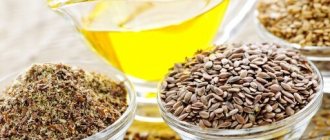Recipes of most national cuisines include abundant use of vegetable oils. The Mediterranean is characterized by the use of cold-pressed olive oil, while the Russian is more familiar with sunflower oil. The calorie content of these products is slightly different from each other; the beloved sunflower oil is 15 kcal higher, but it contains an order of magnitude more vitamin E than its Mediterranean counterpart. When consumed in moderation, sunflower oil has a beneficial effect on the human body.
A storehouse of beneficial fatty acids and fat-soluble vitamins - sunflower seed oil - is necessary to maintain youth and attractiveness. No wonder the ancients called it a product of health and longevity.
Beneficial properties and calorie content of sunflower seed oil
The advantages of sunflower oil, which distinguish it favorably from fats of animal origin, are: stimulation of metabolic processes in the body, normalization of the endocrine and reproductive systems, prevention of disorders and diseases of the gastrointestinal tract, as well as the liver and respiratory system; improving memory, preventing the appearance and development of atherosclerotic process, reducing cholesterol in the blood; strengthening the immune system and improving the body's protective functions.
The canons of classical dietetics state that the most successful combination of animal and vegetable fats that have a beneficial effect on human health is considered to be the following proportion: 20 percent animal product and 80 percent oils obtained from plants. Sunflower oil has become the most accessible source of unsaturated fats and vitamins today. The calorie content of this healthy product is quite high due to its high content of vegetable fat (99.9 percent). It is 899 kcal. People who calculate the energy value of daily consumed foods should not be afraid of such a high figure. Since the daily amount of the popular oil, which nutritionists recommend to cover the deficiency of fatty acids and vitamins, is small.
Useful properties of oil
The beneficial properties of sunflower oil, whose calorie content is 889 kcal per 100 ml, include its ability to reduce the risk of developing cardiovascular diseases, as well as prevent a heart attack.
Consuming sunflower oil daily helps prevent rheumatoid arthritis, asthma and colon cancer. The calorie content of sunflower oil is due to the high fat content in this product.
The calorie content of butter is known to be quite high, as well as its cholesterol content, which casts doubt on the usefulness of this product. However, despite such weighty arguments, butter has a number of beneficial properties for the body, namely:
- The oil contains lauric acid, which is necessary for the treatment of fungal infections and candidiasis;
- It contains lecithin, which is necessary for the metabolism of cholesterol;
- The oil is rich in antioxidants, which protect the body from free radical damage;
- It is an excellent source of vitamins E and K, as well as important mineral salts;
- The saturated fats in the oil have antitumor and anticancer properties;
- The oil contains conjugated linoleic acid, which is a powerful anti-cancer agent and improves immunity;
- Vitamin D contained in butter is necessary for the absorption of calcium;
- Butter is a source of anti-hardness factor, which protects the body from joint calcification;
- Contains arachidonic acid, which plays an important role in brain function and is a vital component of cell membranes.
Palm oil, which has the same calorie content as sunflower oil, is a good source of vitamin A. It is used to increase metabolic rate, treat high blood pressure, and also treat cyanide poisoning. Industrially, palm oil is used to make cosmetics, soaps, toothpaste, waxes, lubricants and inks.
Daily intake of sunflower oil
Answering the question about how much vegetable oil you can eat per day in order not to gain weight, sports nutrition specialists and nutritionists say no more than two (maximum three) tablespoons per day. This amount also includes sunflower oil. In this case, its calorie content will not exceed 300-450 kcal per day. This figure is well within the norms for the consumption of healthy fats designed for people losing weight.
In a diet for weight loss, 30% should be fats and 60% carbohydrates. Moreover, the main share (60-70% of the total amount of vegetable oil) is unrefined sunflower oil - the most useful product with all the vitamins and microelements preserved in it after processing. It differs from others by the presence of a dark shade, acceptable sediment and a pronounced aroma of roasted seeds. It can be used to season vegetable salads, but this product is not suitable for cooking food. No experienced housewife would risk frying fish, meat or vegetables in such oil, since in a hot frying pan it splashes, foams, burns, and also adds bitterness to the finished dish. For frying, refined sunflower oil is better suited, the calorie content of which does not differ from the nutritional value of other types of this product (899 kcal). This oil is pale yellow in color, transparent, and does not have the specific smell or taste of sunflower.
Harm of vegetable oil
Vegetable oil is not harmful to health if consumed in moderation, following the rules for adding it to prepared dishes, and in the absence of contraindications.
Under no circumstances should you eat heated or improperly stored vegetable oil. In such a product, oxidation occurs, as a result of which free radicals are formed, which activate the aging process of the body and provoke the occurrence of many chronic diseases.
Nutrition experts advise against eating corn oil. This oil is in most cases refined, therefore, it has a minimum of beneficial properties.
Read: Calorie content of a red apple per 100 grams
Popular soybean oil often uses genetically modified seeds. The harm of GMOs has been confirmed by numerous studies by scientists from around the world.
Calorie content - 899 kcal
The labels of bottles of sunflower oil often indicate the calorie content of the product per 100 g. It is 899 kcal. Most consumed oils obtained from plants - flaxseed, corn, sesame, coconut and sunflower oil - have approximately the same calorie content per 100 grams - 898-899 kcal. And only cold-pressed olive oil provides the body with 884 kcal.
Marketing ploys about the absence of cholesterol in vegetable fats make nutritionists smile - cholesterol is only found in products of animal origin. In pursuit of profit, even sunflower oil is often labeled with such inscriptions.
Vegetable “gold”
The most popular vegetable product in any home kitchen is sunflower seed oil. Although there are many more vegetable oils in the world, and many of them can be eaten. Thus, olive, almond, apricot, and corn oil are popular and in demand. But special attention should still be paid to sunflower. 100 ml of this product contains almost 900 kilocalories. But such huge quantities of oil are not added to any dish, with the exception of deep-frying foods.
Most often, vegetable oils are measured using spoons. And a completely logical question arises - how many calories are in a tablespoon of vegetable oil? This spoon holds about 17 grams of butter, so the nutritional value of the product in this quantity will be 150 kilocalories.
I wonder how many calories are in a teaspoon of vegetable oil? A small spoon contains about 5 grams of product. This means that refined sunflower seed oil has a nutritional value of about 45 kilocalories.
Lately, few people buy unrefined oil. But this sunflower product is much more fragrant. But its nutritional value is not much higher than refined and even to some extent slightly lower. How many calories are in unrefined vegetable oil? A 100-gram serving contains approximately 889 kilocalories.
But it’s worth stopping not only at sunflower oil. It is also interesting to learn about the nutritional value of other products used in cooking. If you use oil made from corn kernels to prepare your gastronomic masterpieces, then you should know that its nutritional value reaches 900 kilocalories per 100 grams of product.
Refined olive fruit oil will have less calories. One hundred grams contains about 824 kilocalories. Soybean oil is often used in cooking. Its calorie content is the same as that of sunflower.
Recently, manufacturers have begun to add palm oil to a number of products. The energy value of this oil is approximately 884 kilocalories.
On a note! Peanut butter has the lowest calorie content. A serving with a nominal volume of 100 ml contains no more than 570 kilocalories.
Knowing these indicators, each of you can easily calculate how many calories are contained in a spoon.
To summarize, I would like to say that vegetable oil is a fairly high-calorie product that should not be abused. Few people know that this golden liquid does not contain a single gram of protein or carbohydrates. But 99% is allocated to fats.
Calories: 1 tablespoon sunflower oil
On online forums, people often discuss the calorie content of sunflower oil per tablespoon. It can be determined based on two parameters: the volume of the spoon or its weight. The volume of the working part of the spoon (scoop) can vary between 18-20 ml, and the capacity of a device measuring 7x4 cm in grams is 17 g. One gram of sunflower oil contains 8.99 kcal. You can take the generally accepted weight of the spoon, or you can measure it individually using a kitchen scale. The difference between a dry spoon and a full spoon of sunflower oil can be from 12 to 17 g. The result can be multiplied by 8.99 kcal and get the final figure for the energy value of the product in your kitchen (from 108-153 kcal).
For another calculation option, take a standard Russian-made spoon - 18 ml. If 100 ml contains 92 g of sunflower oil, then its energy value is 827 kcal. How to determine how nutritious sunflower oil is? The calorie content in a tablespoon of this healthy product is 18 x 8.27 kcal = 148.9 kcal. Nutritionists recommend that anyone who strictly monitors the nutritional value of their diet not exceed the daily intake of vegetable fats, including sunflower oil.
A couple of tablespoons a day can completely cover the daily requirement of fat-soluble vitamins A, D and E, vitamin F, which is not synthesized by our body, and other important elements. How else can you measure the energy value of sunflower oil?
Conclusion
In most strict diet recipes, the authors require a categorical refusal of any type of fat. They motivate him by the fact that the calorie content of sunflower oil is prohibitive; to process 1g of the product you will have to spend 9 kcal in the gym. But a deficiency of fat-soluble vitamins can cause significant harm with such a diet. Without vitamin D, the condition of joints, nails, teeth and hair worsens. “Beauty vitamin” E is responsible for hydration, youth and healthy appearance of the skin, vitamin A is responsible for its regeneration. These vitamins dissolve exclusively in fat. Knowing how many calories are in sunflower oil, you can regulate your diet without giving up such a healthy product.
Dietary properties of sunflower oil:
How many calories are in sunflower oil, what beneficial properties it has, all this is of great interest to those who lead a healthy lifestyle and monitor their health. So we will try to answer these questions in the following article.
So here it is:
This oil is produced in refined and unrefined forms. The house should have both. If our gastronomic habits do not allow us to do without a frying pan, we should fry in a refined one. It is characterized by a high degree of transparency, a light aroma (or no smell at all after deodorization), does not foam during frying, and does not impart its own flavor to the food.
Unrefined oil is easily recognized by its intense golden-dark color.
Pay attention to its shelf life - it is quite limited. In general, practice shows that it is well preserved for no more than 3–10 months, depending on the type. However, it does not tolerate storage well in the light, and domestic oils, as a rule, are bottled in transparent plastic bottles. Therefore, try not to take oil that is on lit display cases.
The ideal storage temperature is from +5° to +20 °C - this should also be taken into account, and you should choose oil that is sold in a cool supermarket, and not in a stuffy small store or in a spontaneous market in winter and hot summer. After the shelf life expires, oxides are formed in it, which have a bad effect on the metabolism in the body.
The storage conditions for sunflower oil at home should also provide favorable temperature conditions and limited light. If it is possible to pour it into a dark glass bottle, do so. But metal vessels are absolutely not suitable for storing it!











